Monsters And Their Meaning
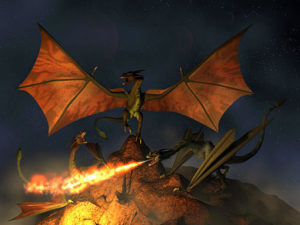 Monsters, according to one definition, are fictional creatures that are “often hideous and may produce fear or physical harm.” Speculative genres—fantasy, science fiction, horror, supernatural—all employ monsters of one type or another. Some, perhaps most, have roots in European literature, but there are a handful of other sources.
Monsters, according to one definition, are fictional creatures that are “often hideous and may produce fear or physical harm.” Speculative genres—fantasy, science fiction, horror, supernatural—all employ monsters of one type or another. Some, perhaps most, have roots in European literature, but there are a handful of other sources.
Those from Europe include Classic Greco-Roman mythology, Norse and Icelandic sagas, and Celtic mythology and folklore. The monsters associated with these stories include Cyclops, gorgon such as Medusa, the furies, dragons, trolls, werewolves, goblins, banshee, witches, the hydra, and vampires.
Then there are the creatures that aren’t inherently evil but who are different, powerful, or magical and thus, frightening: the centaur, nymphs, harpies, dwarves, fairies, elves. Some of these have both good and evil renderings while some are primarily “neutral,” though playful and mischievous, so they may create chaos for humans.
European literature does not have a corner on monsters. Perhaps the most famous and influential are those from ancient Sumer, told in the “Epic of Gilgamesh.” Ancient India, East Asian legends, and tales from the Islamic Middle East are also sources for well-known monsters: jinn and genie, ogres, ninja, ghouls, half-human half-animal hybrids, spirits, and demons.
Of course the Bible is also a source of monsters which find their way into speculative literature. From the Nephilim to leviathan, behemoth, angels, the dragon, demons, and the beast of Revelation, creatures appear, figuratively or literally, in the pages of Scripture, becoming the basis of fictitious monsters.
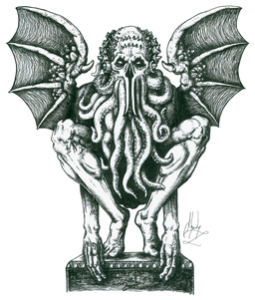 Interestingly, some of the most well-known and frightening monsters have come as new inventions from the minds of the authors who imagined them. In all likelihood, the authors borrowed aspects of other creatures in monster lore to create their own, but the creatures they concocted were not reproductions of what went before. Some of these include J.R.R. Tolkien’s Balrog, Shelob, and Nasgûl, Lloyd Alexander’s Cauldron Born, J.K. Rowling’s dementors, Mary Shelley’s monster created by Dr. Frankenstein, and H.P. Lovecraft’s Cthulhu.
Interestingly, some of the most well-known and frightening monsters have come as new inventions from the minds of the authors who imagined them. In all likelihood, the authors borrowed aspects of other creatures in monster lore to create their own, but the creatures they concocted were not reproductions of what went before. Some of these include J.R.R. Tolkien’s Balrog, Shelob, and Nasgûl, Lloyd Alexander’s Cauldron Born, J.K. Rowling’s dementors, Mary Shelley’s monster created by Dr. Frankenstein, and H.P. Lovecraft’s Cthulhu.
Science fiction perhaps more than other speculative fiction relies on the invention of monsters, whether H. G. Wells’s Martians, the Borg in Star Trek The Next Generation and Voyager, or Jabba the Hutt in Star Wars. These inventions often consist of what contemporary society finds ugly or offensive or disgusting or evil.
Some writers take monsters and re-envision them. Thus, vampires become love interests instead of deadly beings from which to flee (the Twilight series by Stephenie Meyers). Dragons are good instead of evil, protected from dragon hunters by an act of God (Dragons In Our Midst series by Bryan Davis). Elves are noble and wise rather than mischievous or selfish (Tolkien’s The Lord Of The Rings).
Monsters, then, can be redefined. What looks dangerous or deformed may, in fact, be a tortured being in need of a friend (Merian C. Cooper’s King Kong and Shelley’s monster).
What do monsters “achieve” in fiction? They may represent what mankind does not understand and therefore what frightens us. I remember as a child meeting a boy with a facial deformity. He frightened me because I didn’t know what had happened to him. I couldn’t help wondering if I might “catch” what he had. In the 1800s greedy charlatans at times took advantage of people with physical deformities, purposely playing them to be monsters and displaying them for others to gawk at and recoil. In fiction, perhaps looking at what we don’t understand moves us closer to acceptance, to charitable treatment, to a spirit of caring.
Monsters may also stand in for a part of ourselves that the Christian knows to be the sin nature [see Christopher Miller’s recent post “Writers Slay Dragons (and you should too)”]. In his apologetic of horror, guest blogger Brian Godawa said, ” Monsters become metaphors for wickedness suppressed in unrighteousness and its outcome.”
Thirdly, they may show the very real forces of evil against which Scripture says we war. “For our struggle is not against flesh and blood, but against the rulers, against the powers, against the world forces of this darkness, against the spiritual forces of wickedness in the heavenly places” (Eph. 6:12). Monsters, then, represent the reality of invisible spiritual forces and the actuality of a struggle between good and evil.
Monsters can also show a particular trait—greed, over-indulgence, hunger for power—that clarifies an aspect of human nature. For example, Jabba the Hutt, with his repulsive slug-like appearance, taking what he wanted, acted as a mirror for those who use people and hoard goods. As Godawa put it, “We are revealed to be no different than zombies, bloodsuckers, and other monsters in our social injustice and cultural degeneracy.”
One final question. Can monsters be redeemed? C.S. Lewis had perhaps the best monster-redemption scene in literature when Eustace Scrubb as a dragon met Aslan in Voyage of the Dawn Treader. Though Eustace hadn’t been a “bad dragon,” and perhaps a better dragon than he had been a boy, he was nonetheless a monster. Once he encountered Aslan, however, he ceased to be one.
In short, perhaps monsters that are only perceived as monsters can be accepted, but monsters that are truly monstrous can be redeemed if they are changed. Will they inevitably be changed if redeemed? Andrew Peterson seems to challenge that notion in Monster in the Hollows.
What are your thoughts about monsters in literature? Do you prefer those that are familiar or new ones an author has invented? What are the ones you find most frightening? Do you agree or disagree that monsters can’t stay monsters and be redeemed?









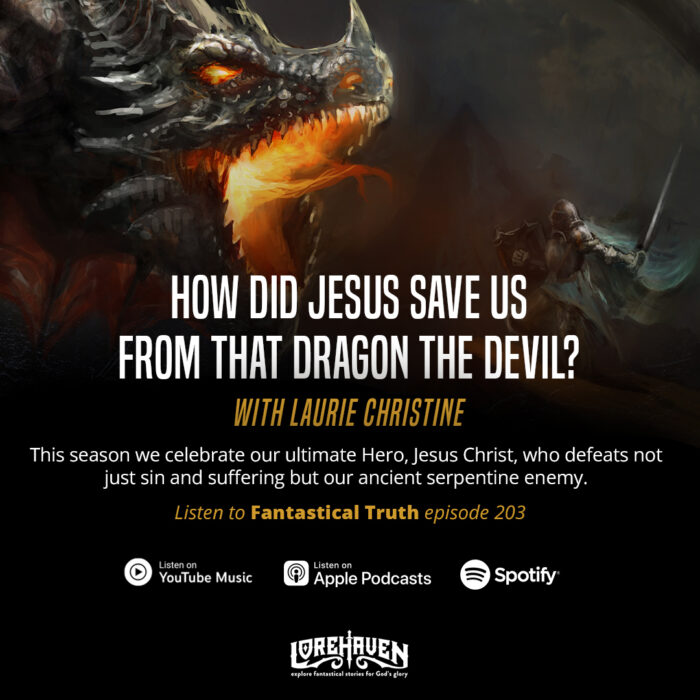





















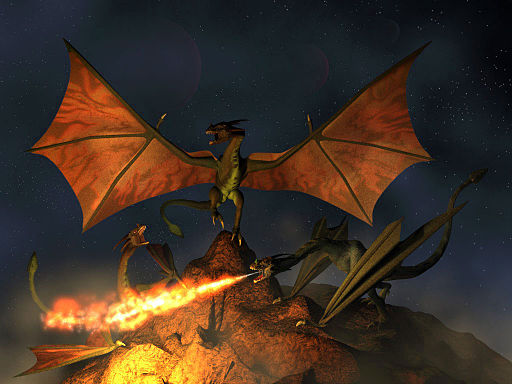

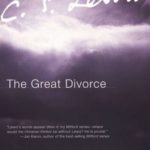






The monsters that scare me most are the ones who were once human (or hobbit, as the case may be). Like Eustace. Like Gollum. And worse? Edmund and Frodo, well on the way to becoming monsters, beyond saving. It is so clear when you see the white witch and Gollum, that Edmund and Frodo could easily fall that far. Could they then be redeemed? Even the kindness of Frodo proved too weak to save Gollum. The Bible says, “Today when you hear his voice, do not harden your heart.” I think there comes a day when it’s too late. When the heart is too hard.
That kind of monster–once human and now beyond reach, is the most terrifying monster, I think.
Sally, I was all ready to say that monsters, if they are to be redeemed, must change a la Eustace. Then I remembered Arthrum the Sock Man and Janner the little Fang heir to the throne in the Wingfeather Saga. Maybe their transformation is still coming. Maybe, like sanctification, it is a becoming.
I do think the monsters that can make us into monsters too are the most frightening. That’s why the Borg were such great villains in Star Trek, why the Nasgûl were so frightening. Gollum was scary in a different way, I thought, but the King of the Ring-wraiths was the one that spooked me the most.
The other thing that makes a monster frightening to me is when they have the power to incapacitate. Shelob was terrifying to me. Even the White Witch turning creatures into stone was horrible.
But I admit, I am not a connoisseur of monster stories, so perhaps there are others that would have an even greater fear impact.
Becky
Esben went through a second transformation after singing the song again; so did Artham. Kalmar is still under the original, bad transformation, though the story suggests it was incomplete.
The Hollowsfolk called Artham a cloven, a monster. Rudric said, not unreasonably, that Artham was “unnaturally transformed”, that only some black power could have made him neither man nor animal.
But I like better Artham’s own explanation: The Maker did more than reverse Gnag’s work. Artham Wingfeather, the “birdman”, was bent by Gnag for breaking, but the Maker turned it to a flourish.
I will say that, though I believe this principle, it has limited application. I see no reason why God’s redeemed shouldn’t have wings; I see plenty why they shouldn’t live on blood and wander around “undead”.
Good thoughts, Shannon. I admit when I first read book two of the Wingfeather Saga, I was troubled by Kalmar’s transformation. I assumed when his eyes went blue that he would change back.
I’ll be interested to see where Andrew Peterson takes this, but I find it true to life–we are changed and we are being changed. Too often, it seems, Christian fiction shows change as if it is instantaneous and total, which rings false to our personal experience and even to Scripture.
But it’s uncomfortable, thinking of ourselves as people who need to die to self, who must take up our cross daily. That, I think, is the way Mr. Peterson is portraying his monster, but I won’t know until that next book. 😉
Becky
I think you’re absolutely right, Sally. The exposition, “They were men once…” is now cliche, but it is still as powerful and alarming as when Aragorn explained the Nazgûl. The terror of the Nazgûl is both that they were men once, but now they are twisted “wraiths” (the word evokes bentness, wrongness, ghostliness, and wrath all at the same time). They can also turn you into something like themselves, which evokes terror of the possibility for such a terrible transformation. I felt that terror keenly when as a teenager I read passages from the Bible about apostacy and the unpardonable sin.
The Forsaken from Robert Jordan The Wheel of Time is another example of horrifying once-human monsters. The really terrible thing about the Forsaken is that they are still human, externally, but their absolute depraved amorality combined with their vast magical powers and the immorality that they obtained by selling themselves to the Devil causes them to be feared by the people of Jordan’s world as if they had always been demons. And there is a theme in the series that all humanity has the capacity to become as dark as the Forsaken. Several of the main character fight the temptation to become the Forsaken, in various ways, in some cases literally. As a reader, I thought the horror was very effective.
And…great article, by the way.
Very good article! I happen to love monsters, good and bad (Pokemon, anyone? Yes, I’ve caught them all.)
Speaking of really frightening monsters, the Weeping Angels from recent Doctor Who mythos are way up there. They’re only statues as long as you look at them. So don’t blink, because they move like lightning. (I now see angel statues EVERYWHERE.)
Or how about the Silence? You forget about them as soon as you look away from them. So they can be coming to kill you, and as soon as you turn to run away, you forget you were running away.
Those monsters work because they tap into the primal fears of the human heart. Don’t look away! What’s in your brain that you’ve forgotten? Did something just move out of the corner of your eye? (Prisoner Zero.)
I’m more a fan of friendly monsters. The reluctant dragon, the werewolf who fights for his loved ones, the sea monster who offers the heroes a ride. Our world is full of amazing animals that are nothing more than monsters. The first Europeans to see ostriches, giraffes and elephants had nothing to compare them to. That’s why everybody laughed at Marco Polo. He came back with tales of monsters. But real-world monsters can be tamed. You can learn their ways and speak their language (like those people who studied wolves or gorillas).
In fantasy, there’s good monsters and bad monsters. The bad ones are the killers, the devourers. Or the insidious insect that worms into your brain and makes you evil, like in the Wind on Fire trilogy (the last book has it, I think). Books like the Dark Materials or The Princess and Curdie play with showing a person’s inner self by giving them an animal that represents their soul. Who would you rather hang around with, a man with a golden retriever, or a man with a cockroach?
So yes. I could go on and on about this. I heart me some good monsters. 🙂
Thanks, Kessie, your knowledge of monster lore shows!
I thought about the werewolf that fights for his loved ones. That seems to me to be Rowling’s twist on the tradition, which as I noted, a number of authors do. Many introduce the idea that the monster can be either good or bad.
I can’t help wondering, though, if we’re not losing the idea of what the monster represents. Are good monsters suggesting that evil isn’t really evil? That evil used for good purposes is justified?
Perhaps her werewolf, and other good monsters, are showing the King Kong truth–just because something or someone is large, powerful, scary, doesn’t mean they should be hated. They may be lonely and need love.
Becky
Well, obviously I LOVE monster lore of all varieties 🙂
As for the werewolf who fights for his loved ones–or other such redemptive portrayals of monsters–I don’t know if it’s a matter of us redefining evil or saying “Oh, that’s not really evil”. I mean, perhaps for some authors, that’s what they’re going for. The idea that what society or an individual considers evil is really just “misunderstood”. Which is a message that can be used for good or for evil. I mean, aren’t Christians often labeled as “monsters” by society, so having a redemptive monster might be used as an opportunity to say “Hey, we’re not monsters. Or at least not all of us. Take a closer look.” But, then again saying “Oh, these Christians say trafficking with demons is harmless, but it’s really not” could be problematic.
Sometimes, though, I think that the point of the “redeemed monster who stays a monster” is actually a reflection on us, as humans, admitting our faults. That’s pretty much the entire thrust of the werewolf and vampire genre these days. Those things are seen as afflictions that, oftentimes come to a person through no fault of their own (if I can borrow a line from the original “Wolfman”). It’s a curse, but that person, if they are “strong” enough, can fight that curse or, better, use it for good.
What I find interesting about THAT premise–if that’s really what redemptive monsters are reflecting–is that perhaps that’s secular humanity’s way of rising above their own inherent fallen nature without the help of a god of any kind. Perhaps that’s just secular writers saying “This is how we are, we can deal with it, we can make the most of it”. Which, of course, is a fruitless effort, apart from real change. Usually in those stories, the person comes to accept that they are a vampire or werewolf or what-have-you and decide “This is who I am. Why should I change? It’s a blessing.” So maybe THEN it starts sliding into the territory of “My anger isn’t really a sin. I need it. It’s my identity.” Which is the unhealthy attitude of most of the world.
I guess it really comes down to the writer. That’s what’s fascinating about monsters is that they can be used for all kinds of symbolism.
Great discussion, and one close to my heart 🙂
Thanks for engaging this topic, Greg. Great, though-provoking material.
I think you’re right, but it all depends on what the cultural issue equated with the monster is. If it’s people of a different race aren’t evil, then good, that’s true. But if it’s people of a sinful lifestyle aren’t evil, well … Scripture wouldn’t agree. So that use of monsters could be helpful or it could be misleading, I think.
I agree with your thinking about the redeemed monster who stays a monster when written by a non-Christian. We are all trying to work through things about the human condition in our writing, and I see this acceptance of the monster, of this taming of the monster rather than trying to kill the monster, as Man’s best effort to deal with sin in our hearts. What else do they know to do? What other hope can they offer?
I agree. This is also why I think readers need discernment. If we aren’t aware of an author’s worldview, it would be easy to fall into their line of thinking, to buy into the secular humanist’s “accept yourself” and the mystic’s “find the power within” because these are things we’d like to believe: I am acceptable as I am; I do have power within.
Again I’ll say, this is why Christians need to be writing in the speculative genres. We need to infuse stories with Truth to counter the way the world looks at life.
Becky
I couldn’t agree more, on all points!
Wow, great topic and great questions!
Honestly, I think the redeeming of monsters depends on your definition of “monster”–whether the word refers to an terrifying appearance (external monster) or an evil heart (internal monster). And then with those two types of monsters, I think the word “redeemed” could also use some redefining. I typed out a long comment (and I do mean a long one) in the box here; then realized I needed to think through the matter a little more. Maybe I’ll return and post my full thoughts later.
But as for the monsters that scare me the most, they tend to be the internal monsters, the evil hearts; and not just that, but the villains who mirror events, attitudes, and aspects in this life. Captain Beatty and the Fahrenheit 451 world is frightening because of its reality:
Or the Capitol from The Hunger Games because that attitude of violent entertainment, the destroying of the sacredness of human life, the “fun lifestyle” pursuit, is where America already is.
Or Mr. Curtain from They Mysterious Benedict Society, who found ways to manipulate fear into doing his work for him–if you read the book, you’ll find it’s not as cheesy as it might sound. 🙂
So anyway, thanks for posting your thoughts and asking for ours!
Blessings,
Literaturelady
Honestly, I think the redeeming of monsters depends on your definition of “monster”–whether the word refers to an terrifying appearance (external monster) or an evil heart (internal monster).
Exactly right! I totally agree with that. And as for monsters that are assumed to be evil–first we have to establish if we mean sentient evil or merely animal hostility. Because if they are sentient evil, then we have the possibility of redemption, whereas animal hostility can only be tamed. Secondly, we have to look at all traditions–Asian dragons are benevolent deities, not the hostile beings of Western tradition. We also have to look at the defining characteristics—because vampires must drink blood, I have more issues with good vampires than with good dragons or centaurs.
Good point about differentiating between “evils,” Galadriel. Do you think secular writers think only of taming rather than redeeming?
Your point about dragons is good. I hadn’t realized the difference between the Eastern and the Western treatment of them until I started work on this article. I had to wonder if the religious background of each culture played a part. Scripture says in Revelation that Satan is the Dragon, the Serpent of old. What if Satan, who is also the Father of lies, portrayed himself as wise and benevolent in the Eastern religions? In that light, would dragons be any different than monsters? In other words, are monsters still monsters even though the people around them don’t see them as such?
Today that might apply to our treatment of vampires. Are vampires still evil though people reading about them think they can be noble by exercising restrain?
Of course, vampires aren’t real creatures, so their mythology can be re-written, I think. What if a vampire species learns they can survive on coconut milk instead of blood? Couldn’t vampires then be redeemed if they would learn they didn’t need to live according to their nature?
Interesting, discussion, definitely.
Becky
I agree with you LL. As Greg pointed out, what the monster represents depends on the author. On the reader, too, I suppose.
Other types of literature can show the wickedness of a person’s heart, but there’s something so much more profound when it shows up in tangible form, I think. The literal monsters of speculative literature make it hard to explain them away. unless that’s where the author takes the stories: Oh, these vampires aren’t bad; they are doing what they were born to do; it’s their nature; they can’t help it.
I think Wicked did something like that (if I have the right title) when it told the story of Oz’s wicked witch of the west by explaining how abused and misunderstood she was. The monster, then, becomes understandable and sympathetic, someone that should be accepted.
Anyway, it’s interesting to see that the inner evils, the monsters that threaten our souls seem to be the ones that most commenting here agree generate the greatest fear.
I appreciate you adding to this good discussion, LL.
Becky
I don’t want to say too much about this and leave myself nothing for next week, but I think the stage play has more of this tone than the book, which didn’t seem to me as much of an apologetic for the witch as an explanation. Yes, she’s neglected, shunned, abused, manipulated, betrayed, etc, but she begins life as an intelligent, strong-willed, idealistic woman capable of overcoming her ample share of adversity. Instead, she surrenders to despair and is consumed by her own bitterness and obsession. She’s turned to wickedness in the end, but she bears the responsibility of her own choices. It’s not acceptable, though it might be understandable in that we’ve seen the twists and turns of her path into evil. Her story didn’t have to end that way, and it’s tragic. Wicked may be saying that witches are made, not born, but it also indicates they have a hand in their own making.
I think the monster is often a reflection of ourselves–our fears, our passions, our sin, our worst impulses unbridled and writ large. To master the monster is to wrestle with the forces that work to transform us into the personification of evil, and this is a noble struggle. Characters like the Hulk and Professor Lupin spend their whole lives fighting that fight. Galadriel and Frodo grapple with it and win out. Some characters, like Elphaba, and Loki, and Tom Riddle lose the fight, or worse, embrace the darkness without reservation.
Then again, there are some monsters that just want to eat your brains.
Fred, I knew you’d have good things to say about this. Thanks for the clarification about Wicked.
I agree with you about the struggle against the monster within, but what you said made me think again that secular literature only has an artificial answer to offer. Christianity, it seems to me, is the only worldview that says this struggle is vain, not heroic, because it cannot succeed. Our efforts simply cannot free us.
BTW, I don’t think Frodo is an example of one who grappled with it and won out. If it weren’t for Golum, Frodo would have been consumed by the ring too. He lost his struggle, but was saved anyway. That’s a lot closer to Truth, I think.
Becky
I have to disagree with you in part here and contend that perseverance in the face of overwhelming adversity and hopeless odds is heroic, even in failure, and I think this is a quality recognized across worldviews, including Christianity, that we admire wherever we find it. We’ve got Leonidas, and Spartacus, and the Light Brigade, and the Boy on the Burning Deck…
This isn’t to say it’s sufficient–heroism doesn’t save us, but the struggle may become an avenue of salvation, when we come to the end of ourselves and realize our strength isn’t enough. The Christian worldview understands what needs to happen next, rather than leaving us there shaking our heads and saying, “Gee, that was inspiring. Too bad he didn’t stand a chance. C’est la vie.” Sampson and Jacob and David and Peter and so many others find themselves at that breaking point, fall down, reach out to God, and stand to fight again–and perhaps fall once more, and start all over again.
Certainly the grace and power to be brave and choose rightly comes from God, but there’s an element of our reaching out to take hold of that grace, to cooperate with it, however imperfectly, that can’t be discounted. It means something, and I can’t help but believe it’s important. Scripture enjoins us to fight, to wrestle, to press on…if the fight doesn’t matter, what’s the point of telling us to?
Re Frodo, he likely would have succumbed much earlier without the support of Sam and the other members of the Fellowship and was pulled from the brink of failure several times before the end. I think that if he had truly lost, he would have pursued the Ring, and Gollum, headlong into the Crack of Doom. Yes, he received help, strange help, at the very breaking point, but I don’t think his struggle is less significant or his victory denied because he had help, there or at any other point in his journey. He couldn’t succeed alone, but his perseverance and sacrifice were also a vital part of his success.
I agree with both of you. I think you’re each talking about two slightly different things.
Becky’s point is valid in terms of Christianity being a (rare) worldview that recognizes that we cannot free or save ourselves. And yes, that striving to justify our own lives before God is always in vain.
And yet, there is heroism in the classic story of someone who fights and struggles and perseveres to achieve some goal (save the world, rescue the victims, protect the innocent, gain the crown, etc). God asks that we step up to the plate and “fight the good fight of faith”, that is, that we put our actions where our beliefs lie and LIVE for Him in word and deed. Without our participation, we cannot have the abundant life. Without our stepping out on faith, we cannot see fruit.
There is heroism in every act of faith.
So it just depends on what story is being told. If it’s a story about following what you believe, the quest is heroic. If it’s a story about discovering that you cannot save yourself, then no matter how the hero suffers and sacrifices, it is in vain — and that should be reflected in the story. And there’s a lot of in-betweens and variations around these two themes.
What happens in the world is that they get confused. So in their stories, people do save themselves or find “redemption” simply in winning the love of another human being.
At least, that’s kinda how I see it. 🙂
Teddi, as I read Fred’s comment, I was thinking the same thing. It really does depend on what story a writer is telling. Was there heroism in Stephen dying a martyr’s death. Yes, absolutely. And in Paul suffering beatings and imprisonment, but still preaching Christ. There’s heroism in Jim Elliott and his friends going to a people group in Ecuador that took their lives, and in his wife Elizabeth going back to preach Christ to them. There’s heroism in Corrie ten Boom’s sister Betsy blessing her captors as she lay dying. There are great examples of pressing on–winning and losing–in the pages of Scripture and throughout history
No doubt about it, Fred–there are self-sacrificial acts (see last week’s post) that resonate in real life and in story. But my point is precisely what Teddi said–if we confuse noble acts with redemptive acts, then we’re giving a false idea. Trying hard, doing good, even sacrificing one’s self does not satisfy God’s requirement. That’s what Christians know that the rest of the world doesn’t.
And about Frodo. Yes, he fought hard. He almost succeeded, and he couldn’t have come as close as he did without his friends. In the end, he failed. Who knows what he would have done if Sam hadn’t carried him to the door? But once the ring was destroyed, its hold on him was gone, so perhaps its fall with Gollum into the fire was enough to release him. But I think it’s an important point that even Frodo was subject to the power of the ring. None are righteous, no, not one.
Becky
Great discussion! Just about everything I would have said has been covered in the comments, except one tiny little corner.
When discussing the question of whether a redeemed monster should be transformed (into something less monstrous, or perhaps returns to his original humanity as in the case of vampires or such), it was mentioned that we ourselves (as redeemed humans) are changed and are still changing. There is a life-long process of sanctification that might be well represented by a redeemed monster keeping his monstrous form.
I would add to that one further small step: The Bible speaks of our “glorified bodies”, that somehow a final transformation of our physical forms is reserved for some future time. For my own story world, where werewolves are perhaps genetically tainted by the DNA of fallen angels, this gives me the final theological “out” I needed. Some readers have asked me, “How can you reconcile these werewolves being ‘saved’ when they are abominations that God wanted wiped from the earth? Their DNA is corrupted and they are not human, they are exempt from salvation.” Although this wasn’t a big concern for me, I don’t like loose ends, so I pondered it for quite some time.
Once I realized that even “bad DNA” could be finally overcome when they are given their “glorified bodies”, then I was content.
My characters experience a very realistic variety of redemptive results after salvation. Some are instantly delivered of demonic curses or physical manifestations and addictions. Others go through a process, where as they follow Christ they learn to resist and overcome the things that plague them. Some revert from monster form to fully human.
Anyway, totally enjoyed all the comments and much thanks to Becky for the great post!
Teddi, your comment brought to mind two books that I think aim to accomplish what you mention–C. S. Lewis’s The Last Battle and Wayne Thomas Batson’s The Final Storm. Not that they had a physical transformation from monster to human in the same way that Eustace Scrubbs did, but theirs was clearly eternal.
Becky
Agreed. That’s what I was talking about with regard to heroism not being sufficient. Teddi’s right in that we’re in violent agreement about most of this and are talking past each other to some degree. 🙂
I wonder, though, if we’re leaning toward a narrow definition of “redemptive acts” that limits Christian fiction to historical narratives or direct allegory of Christ’s death and resurrection, a restriction we’ve argued against in the past here at SF. If that’s the case, I don’t think there’s much danger of confusing heroism with redemption. You can’t really have Redemption without the Redeemer, either literally or figuratively.
Fair enough. Of course, this doesn’t explain Galadriel’s triumph in her brief struggle with the seduction of the Ring. In what way was she superior to Frodo? How are we to define righteousness or its lack, in the Christian understanding of the word, in a fantasy setting like Tolkien’s?
At least not in the measure of sinlessness, as compared to God, or by our own power or merit. The Bible does, however, spend a lot of time identifying righteous people and their characteristics and acts, so I think, even in the Christian context, the definition is broader than purity alone. We are born into sin, but we are called to righteousness.
I recently heard–and I don’t know if it’s true; I certainly didn’t pick up on it on my own–that Galadriel was a manifestation of Tolkien’s Catholic theology. She was a representation of Mary, the mother of Jesus. As I understand it, according to Catholic theology she was sinless, so that would fit with her resisting the ring.
Of course Gandolf did too. Some might say, he being a Christ figure, would be sinless as well. Others might think of Tolkien’s wizards as angels, some who rebelled and some who didn’t.
About redemptive acts. You’re right that there isn’t really another act in history that is redemptive, so in fiction only a literal or figurative representation of Christ gives the clear picture. However, Scripture has many pictures of Christ’s redemption–the ram Abraham substituted for Isaac, the passover lamb the people of Israel sacrificed on the way out of Egypt, the bronze serpent lifted up to cure the sickness of the rebellious Israelites, the branch tossed into the bitter waters of Mara to make them sweet. I think fiction can include those kinds of redemptive acts as a way of introducing readers to the concept of redemption without spelling out the correlation between that and Christ’s work at the cross.
The only point I was making in my earlier comment was perhaps a caution for writers–I think it’s possible to slip into the thinking of the world and set our heroes up as the star in a way that is more consistent with a humanist worldview than a Christian one. I doubt seriously if we’re in disagreement. 😀
Becky